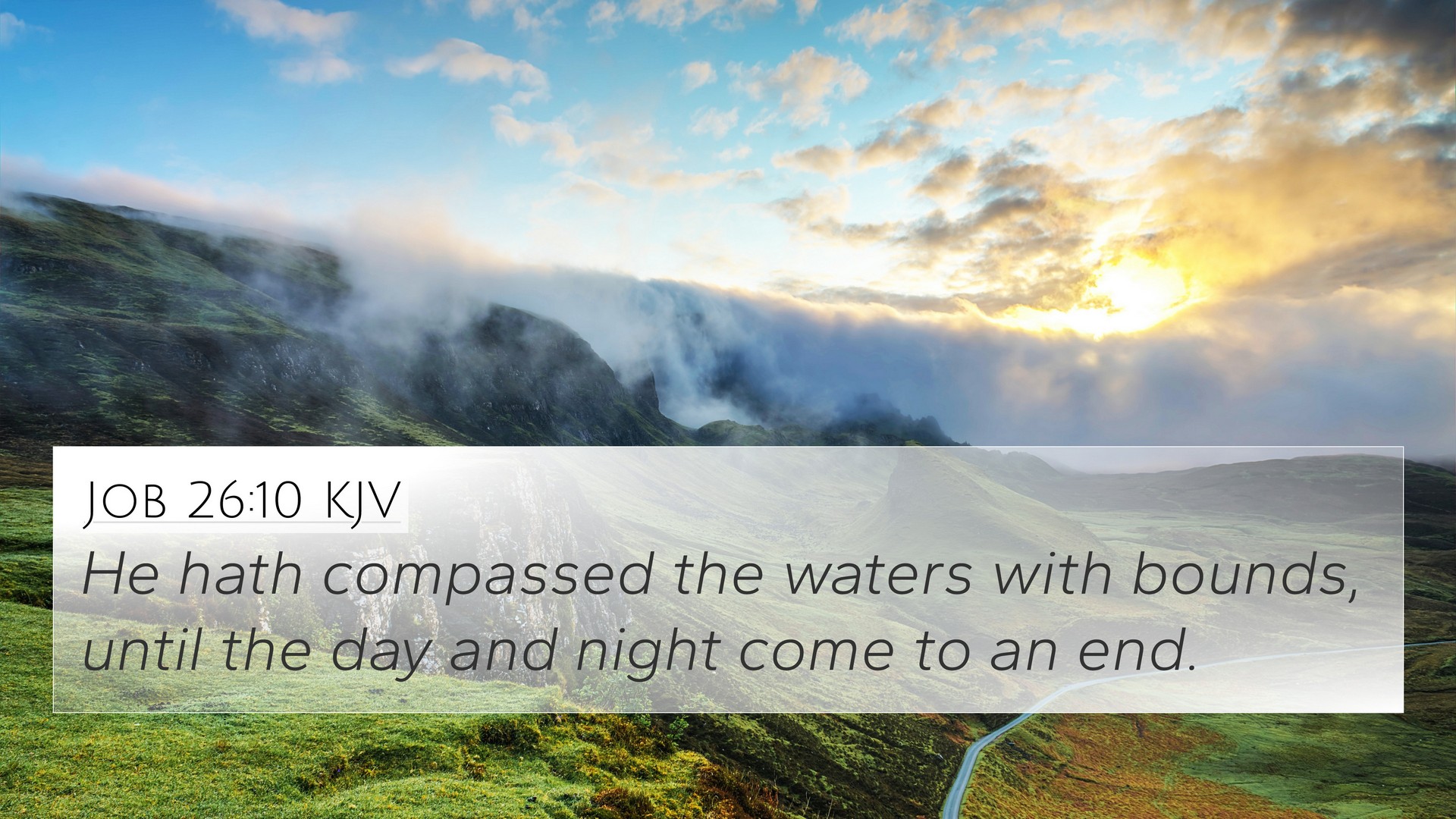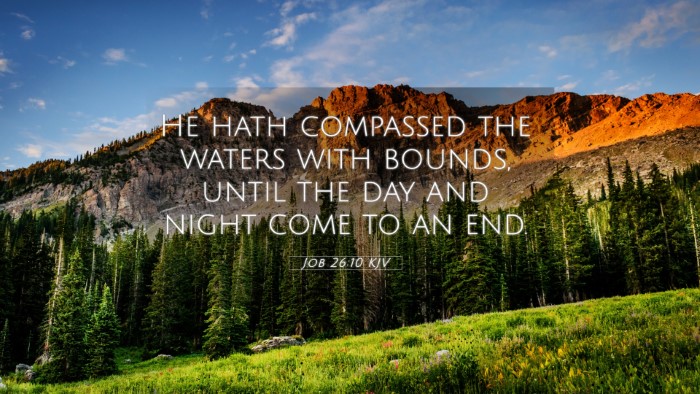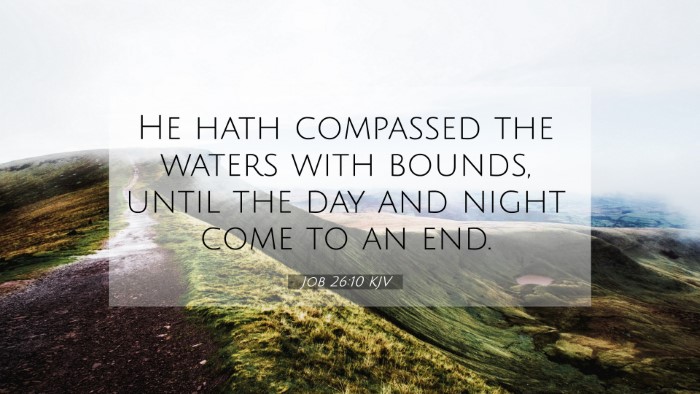Old Testament
Genesis Exodus Leviticus Numbers Deuteronomy Joshua Judges Ruth 1 Samuel 2 Samuel 1 Kings 2 Kings 1 Chronicles 2 Chronicles Ezra Nehemiah Esther Job Psalms Proverbs Ecclesiastes Song of Solomon Isaiah Jeremiah Lamentations Ezekiel Daniel Hosea Joel Amos Obadiah Jonah Micah Nahum Habakkuk Zephaniah Haggai Zechariah MalachiJob 26:10 Similar Verses
Job 26:10 Cross References
He hath compassed the waters with bounds, until the day and night come to an end.
Uncover the Rich Themes and Topics of This Bible Verse
Listed below are the Bible themes associated with Job 26:10. We invite you to explore each theme to gain deeper insights into the Scriptures.
Job 26:10 Cross Reference Verses
This section features a detailed cross-reference designed to enrich your understanding of the Scriptures. Below, you will find carefully selected verses that echo the themes and teachings related to Job 26:10 KJV. Click on any image to explore detailed analyses of related Bible verses and uncover deeper theological insights.
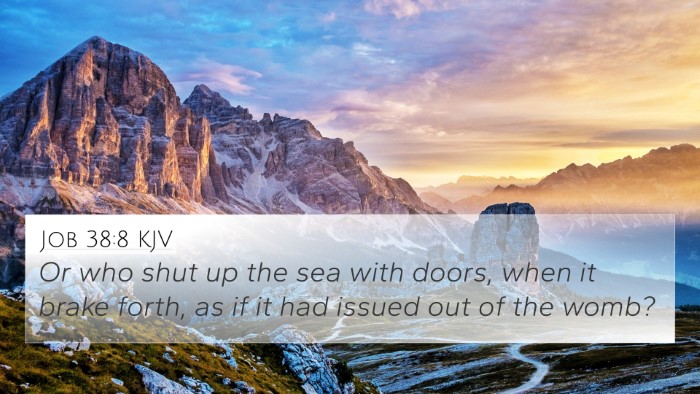
Job 38:8 (KJV) »
Or who shut up the sea with doors, when it brake forth, as if it had issued out of the womb?
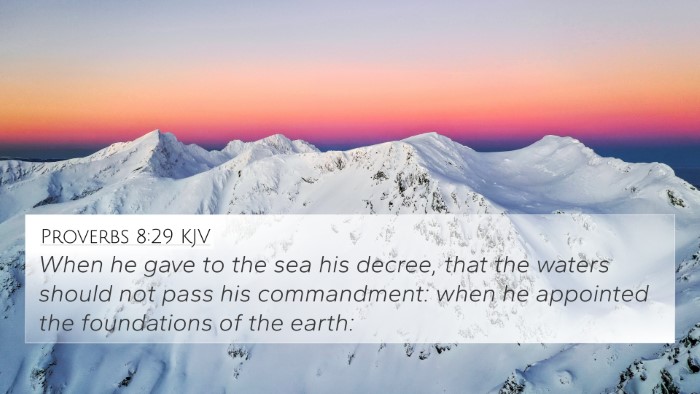
Proverbs 8:29 (KJV) »
When he gave to the sea his decree, that the waters should not pass his commandment: when he appointed the foundations of the earth:
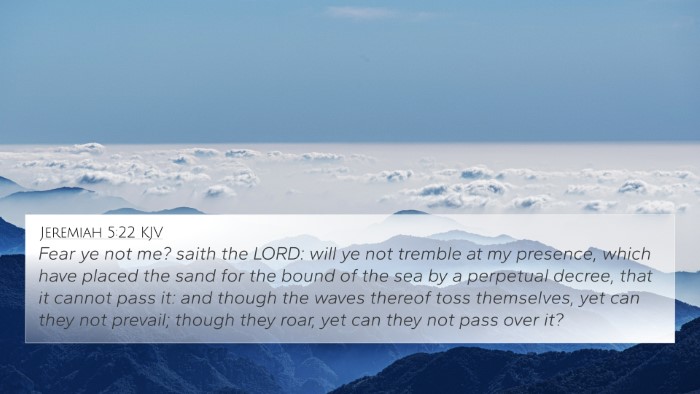
Jeremiah 5:22 (KJV) »
Fear ye not me? saith the LORD: will ye not tremble at my presence, which have placed the sand for the bound of the sea by a perpetual decree, that it cannot pass it: and though the waves thereof toss themselves, yet can they not prevail; though they roar, yet can they not pass over it?
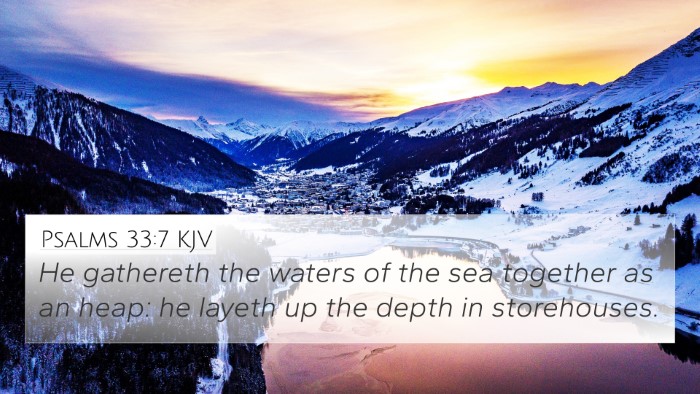
Psalms 33:7 (KJV) »
He gathereth the waters of the sea together as an heap: he layeth up the depth in storehouses.
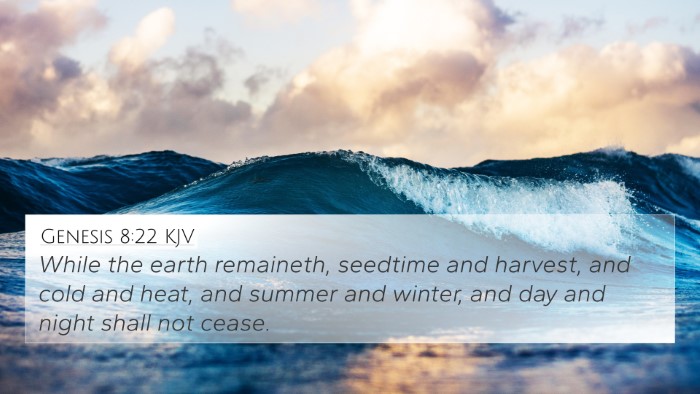
Genesis 8:22 (KJV) »
While the earth remaineth, seedtime and harvest, and cold and heat, and summer and winter, and day and night shall not cease.
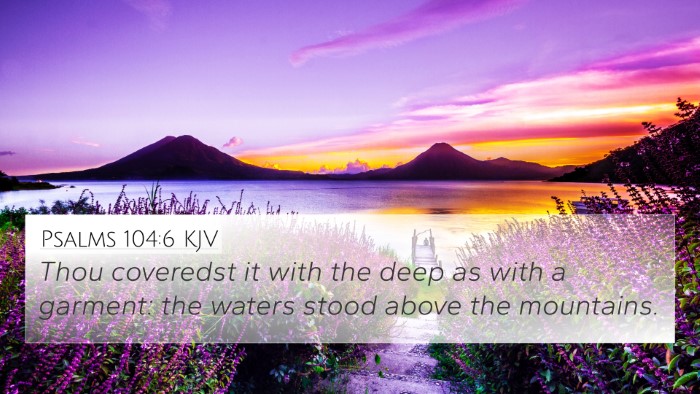
Psalms 104:6 (KJV) »
Thou coveredst it with the deep as with a garment: the waters stood above the mountains.
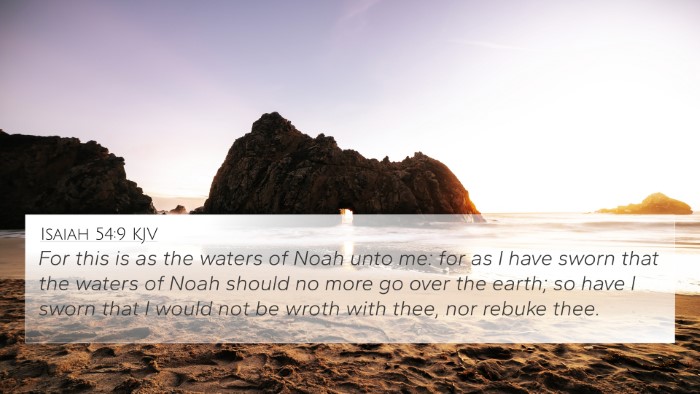
Isaiah 54:9 (KJV) »
For this is as the waters of Noah unto me: for as I have sworn that the waters of Noah should no more go over the earth; so have I sworn that I would not be wroth with thee, nor rebuke thee.
Job 26:10 Verse Analysis and Similar Verses
Understanding Job 26:10
Job 26:10 states, "He hath compassed the waters with bounds, until the day and night come to an end." This verse showcases God’s sovereignty and control over creation, emphasizing the boundaries He has set within the natural order.
Summary of the Verse
This verse reveals the majesty and authority of God as the Creator. In this poetic declaration, Job reflects on the power of God to determine the very limits of the seas and the alternation of day and night. Job, amidst his suffering, acknowledges God's omnipotence and His meticulous governance of the universe.
Insights from Public Domain Commentaries
-
Matthew Henry:
Henry emphasizes the grandeur of God's creation, detailing how He has established boundaries for the waters, symbolizing His authority. He suggests that these limits serve as a testament to God's wisdom, and the orderly progression of day and night is a reflection of His careful design over the cosmos.
-
Albert Barnes:
Barnes interprets the metaphor of the waters metaphorically, pointing out how God has not only created the physical world but has also set in motion the laws that govern time and nature. The "bounds" signify God's decree that controls the chaos, illustrating divine sovereignty.
-
Adam Clarke:
Clarke notes the poetic nature of Job’s speech and how it demonstrates a profound acknowledgment of God’s ultimate power. He draws connections to other scriptures that echo the themes of God's sovereignty over creation, noting how God’s control over the waters and night is figurative of His spiritual governance.
Related Bible Verses
Job 26:10 connects to several other passages that elucidate the themes of divine sovereignty and control over creation:
- Proverbs 8:29 - "When He gave to the sea His decree, that the waters should not pass His commandment."
- Psalm 104:9 - "Thou hast set a bound that they may not pass over; that they turn not again to cover the earth."
- Jeremiah 5:22 - "Fear ye not me? saith the LORD: will ye not tremble at my presence, which have placed the sand for the bound of the sea."
- Isaiah 40:26 - "Lift up your eyes on high, and behold who hath created these things, that bringeth out their host by number..."
- Genesis 1:3-5 - "And God said, Let there be light: and there was light. And God saw the light, that it was good..."
- Isaiah 45:18 - "For thus saith the LORD that created the heavens; God Himself that formed the earth and made it; He hath established it..."
- Psalm 19:1 - "The heavens declare the glory of God; and the firmament sheweth His handywork."
Thematic Connections
Several themes emerge from Job 26:10, particularly regarding God's power and authority. This verse serves as a reminder of the broader narrative within the scripture about God's governance over the universe. Not only does it link to creation narratives but also to moments in the New Testament where Jesus demonstrates authority over nature (e.g., calming the storm in Mark 4:39).
Cross-Referencing Biblical Texts
This verse is a prime example of how effective cross-referencing can deepen one’s understanding of biblical texts. Here are some tools for better engagement with scriptures:
- Utilizing a Bible concordance to locate themes and cross-references.
- Employing a Bible cross-reference guide to identify related verses.
- Engaging in cross-reference Bible study to see how themes connect across books.
- Exploring comprehensive Bible cross-reference materials available both online and in print.
Inter-Biblical Dialogue
Job 26:10 instigates a conversation between the Old Testament and the New Testament, highlighting how the sovereignty of God is a consistent theme throughout the Bible. The connection can be drawn with passages that speak of Jesus' authority over creation, indicating a seamless dialogue between the texts.
Conclusion
Job 26:10 serves as a profound reminder of God's omnipotence and creative order. By understanding this verse in conjunction with the insights from various commentaries and its intertextual connections, we can appreciate the depth of scripture and the continued relevance of God's relationship with creation.
